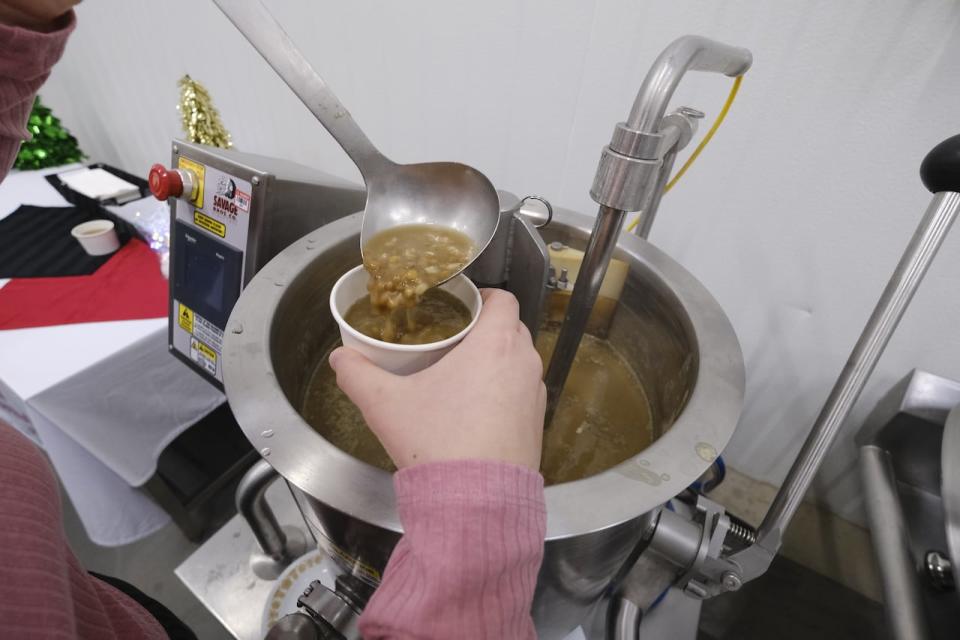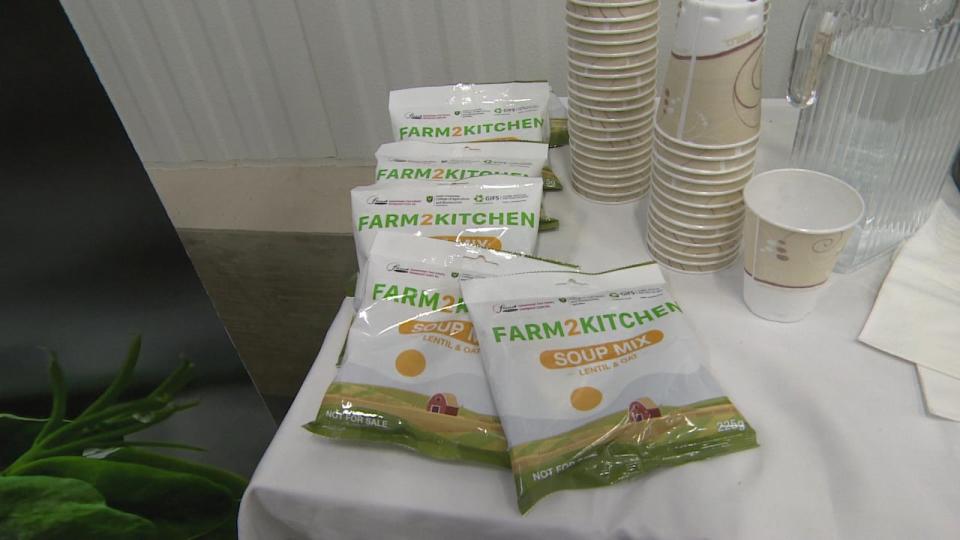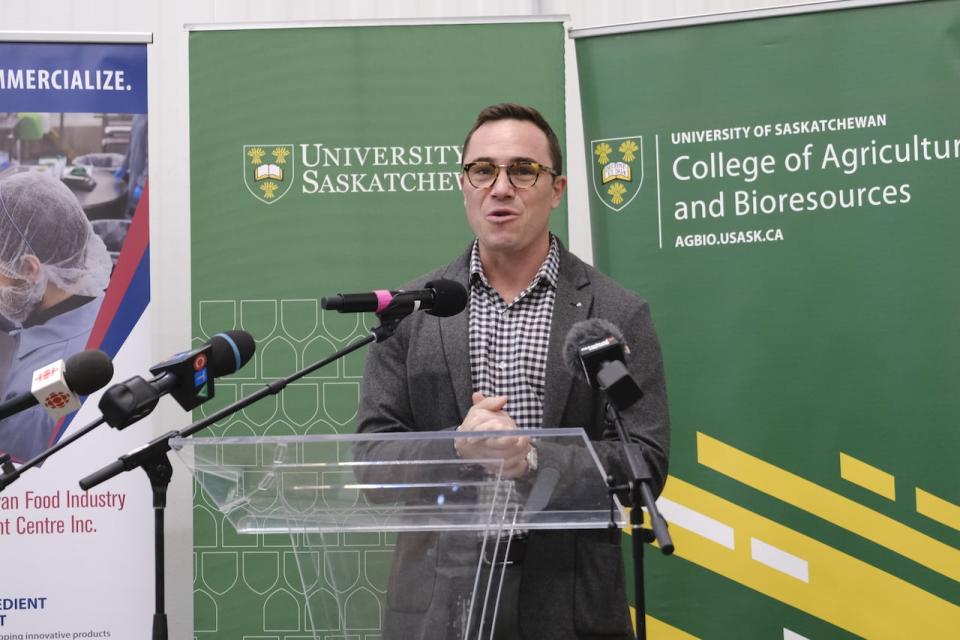 Food banks in Saskatchewan are spending millions of dollars every year buying food, but researchers at the University of Saskatchewan have come up with a new product that can reduce those costs.
Food banks in Saskatchewan are spending millions of dollars every year buying food, but researchers at the University of Saskatchewan have come up with a new product that can reduce those costs.
Working with Saskatoon’s Food Centre, the researchers have produced an “affordable” and nutritious option — a dry soup mix that can produce four to five cups of soup per packet.
The mix is primarily made of locally sourced oats and lentils.
Michael Nickerson, the acting department head of food and bioproduct sciences at the College of Agriculture and Bioresources, says the soup mix was formulated in the last few months, but stems from research done years ago seeking the best nutritional balance when blending cereals and pulses such as lentils.
The mix can give food bank clients a good source of protein in their diet, Nickerson says.
“They need affordable choices,” Nickerson said. “The soup mix product really fits that bill because we can produce it cheap.”
 Dry soup mix packets produced at the Food Centre. (CBC Radio-Canada)
Dry soup mix packets produced at the Food Centre. (CBC Radio-Canada)
The product is “not about profit,” he added. The soup packets will not be sold in stores.
The president of the Food Centre, Mehmet Tulbek, says they have the capacity to produce 15,000 packets a day and have done so during a pilot phase.
The packets will be sent to the food banks in Saskatoon and Regina, with production costs covered by funding from the university’s Global Institute for Food Security.
The vice-president of the Regina Food Bank, David Froh, says rising food costs have been a major problem.
“Like Saskatchewan families, food banks are experiencing rising costs when we buy food,” Froh said. “The Regina Food Bank will spend over $1,000,000 a year buying food.”
Froh expects their portion of the 15,000-packet donation will cut its soup costs in half.

David Froh, vice president of the Regina Foodbank, says one in five children and one in eight households in Saskatchewan are food insecure. (Liam O’Connor/CBC)
He says there’s more than enough food in the world to feed everyone and that collaboration and innovation is key to achieving that.
“Food banks don’t actually control why people come in. We have a minimum wage that isn’t a living wage, [and] our clients are renters, but what we can do is innovate.”
Froh says food insecurity — one in five children and one in eight households fit that description — is getting much worse in Saskatchewan.
“We’ve seen a 42 per cent increase in the amount of people we feed year over year,” he said.”We’re feeding over 15,000 people a month [and] almost half of those are children.”
Tulbek, Froh and Nickerson say they want the soup mix pilot project to go nation-wide next year.
Tulbek says the goal is to scale up to three million packets a year and distribute them to food banks across Canada.
*****
Credit belongs to : ca.news.yahoo.com
 Atin Ito First Filipino Community Newspaper in Ontario
Atin Ito First Filipino Community Newspaper in Ontario






